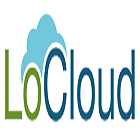
Lo-Cloud
Local Content in a Europeana Cloud
Completed
R&D Project - European
- Contact person: Costis Dallas
- Start date: 01-03-2013
- Duration: 36 months
- Programme: ICT Policy Support programme (CIP-ICT-PSP), Best Practice Networks
- IMSI funding: 196 KEuros
- Project webpage: http:// www.locloud.eu/About
- Partners: MDR Partners, National technical University of Athens, Instytut Chemii Bioorganicznej Pan – Institute of Bioorganic Chemistry, Ministerio de Educación, Cultura y Deporte , Kulturstyrelsen, Biblioteca Judeţeană ‘O.Goga’ Cluj, Ministerie van onderwijs, cultuur en wetenschap - Rijksdienst voor het Cultureel Erfgoed, Narodni pamatkovy ustav, Universidad del País Vasco, Asplan Viak Internet AS, Vilniaus universiteto Komunikacijos fakultetas, University of York - Archaeology Data Service, Javni Zavod Republike Slovenije za Varstvo Kulturne Dediscine, Provincial Centre for Cultural Heritage, Archives Départementales de la Gironde, Zavod Jara, Future Library, Fundação Museu Nacional Ferroviário, University of Duisburg-Essen, Angewandte Informationstechnik Forschungsgesellschaft mbH, ABM Resurs Västernorrland, Pencho Slaveykov Regional Library, Biblioteka grada Beograda, Hacettepe Universitesi, Cyprus University of Technology, Minjastofnun Íslands /The Cultural Heritage Agency of Iceland, The Discovery Programme, Univerzita Komenského Prírodovedecká fakulta Katedra aplikovanej a environmentálnej geofyziky, Fondazione Ranieri di Sorbello
LoCloud aims to build on the achievements of CARARE in establishing a repository-based aggregator for Archaeological and Architectural heritage and of Europeana Local in its work with local institutions and their regional and national aggregators, which resulted in the contribution to date of well over 5 million items to Europeana.
The main goals of LoCloud are:
- to continue to ease the task of enabling heritage organizations in making their contents accessible via Europeana, by using cloud technologies to provide services and tools which help to reduce technical, semantic and skills barriers,
- to facilitate aggregation of digital content from small and medium cultural institutions, to be made available to Europeana,
- to enable smaller institutions such as house-museums to contribute their content to Europeana,
- to explore the potential of cloud computing for aggregation, enrichment and re-use, with a special focus on geographic location.